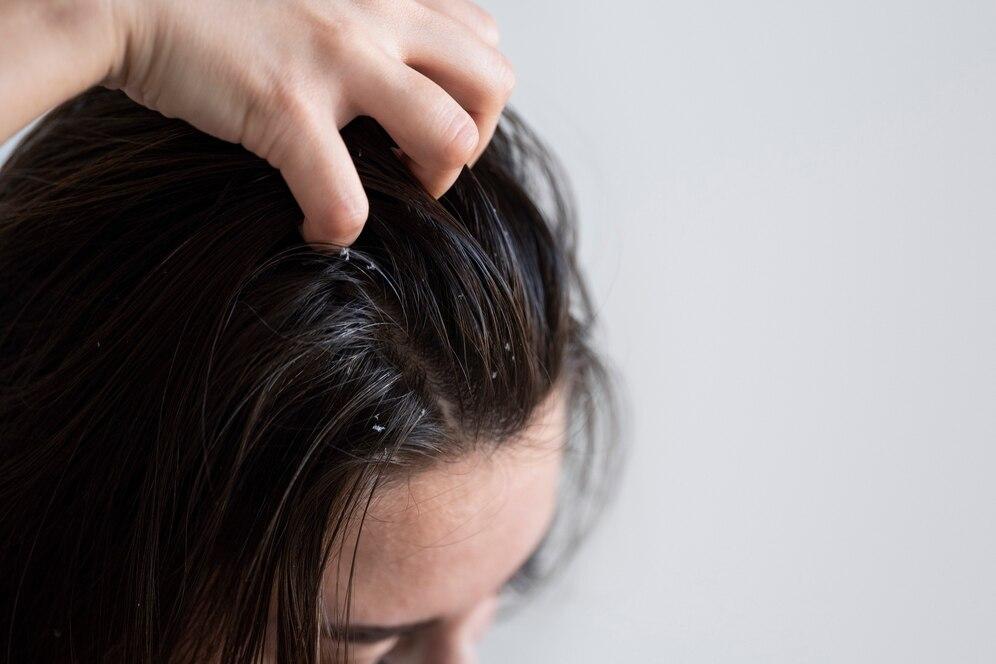Dealing with hair that has oily roots and flaky ends can be frustrating and confusing. This common issue, often referred to as greasy dandruff, is not only a cosmetic concern but also a sign of underlying scalp health problems. In this blog post, we'll delve into the causes of greasy dandruff, how it develops, and effective ways to manage and prevent it.
Understanding Greasy Dandruff
Greasy dandruff is characterized by a combination of excessive oil production at the scalp and dry, flaky patches along the hair shaft. Unlike dry dandruff, which consists of small, dry flakes that easily fall off the scalp, greasy dandruff results in larger, oily flakes that stick to the hair and scalp. This condition can lead to an itchy, uncomfortable scalp and visibly unappealing hair.
Causes of Greasy Dandruff
- Overactive Sebaceous Glands: The scalp's sebaceous glands produce sebum, a natural oil that moisturizes and protects the scalp. When these glands become overactive, they produce excess sebum, leading to oily roots. This excess oil can cause skin cells to clump together, forming greasy flakes.
- Malassezia Fungus: This naturally occurring yeast lives on the scalp and feeds on sebum. An overgrowth of Malassezia can irritate the scalp, leading to increased cell turnover and the formation of dandruff. The combination of excess oil and fungal overgrowth exacerbates greasy dandruff.
- Hormonal Imbalances: Hormonal fluctuations, especially those related to puberty, menstruation, pregnancy, and menopause, can affect sebum production. Increased androgen levels, in particular, can lead to an oily scalp and dandruff.
- Improper Hair Care: Using heavy, oil-based hair products, infrequent washing, or harsh shampoos can disrupt the scalp's natural balance, contributing to greasy dandruff. Additionally, over-washing can strip the scalp of its natural oils, prompting it to produce even more sebum.
- Diet and Lifestyle: A diet high in sugar, unhealthy fats, and processed foods can influence sebum production and scalp health. Stress, lack of sleep, and poor hygiene practices can also contribute to the development of greasy dandruff.
Managing and Preventing Greasy Dandruff
- Choose the Right Shampoo: Use a gentle, sulfate-free shampoo designed for oily hair or dandruff. Look for ingredients like salicylic acid, ketoconazole, or zinc pyrithione, which can help control oil production and reduce fungal growth.
- Wash Regularly: Washing your hair frequently helps remove excess oil and dandruff flakes. However, avoid over-washing, as this can dry out the scalp and stimulate more oil production. Aim for a balanced routine, such as washing every other day or as needed.
- Condition the Ends: Apply conditioner only to the mid-lengths and ends of your hair to prevent dryness and breakage. Avoid applying conditioner to the roots, as this can contribute to oiliness.
- Exfoliate the Scalp: Use a scalp scrub or a gentle exfoliating treatment once a week to remove dead skin cells and excess oil. This can help prevent the buildup of greasy flakes and promote a healthier scalp environment.
- Maintain a Healthy Diet: Incorporate a balanced diet rich in fruits, vegetables, lean proteins, and healthy fats. Foods high in omega-3 fatty acids, vitamins A, C, and E, and zinc can support scalp health and regulate sebum production.
- Manage Stress: Practice stress-reducing activities such as yoga, meditation, or regular exercise. Managing stress levels can help balance hormone production and improve overall scalp health.
- Avoid Heavy Hair Products: Opt for lightweight, non-comedogenic hair products that won't clog pores or add excess oil to your scalp. Avoid heavy gels, creams, and oils that can exacerbate greasy dandruff.
- Consult a Dermatologist: If over-the-counter treatments and lifestyle changes don't alleviate your greasy dandruff, consult a dermatologist. They can recommend prescription-strength shampoos, topical treatments, or medications to address the underlying causes.
Conclusion
Greasy dandruff, with its oily roots and flaky ends, can be a challenging condition to manage. However, understanding its causes and implementing a targeted hair care routine can make a significant difference. By choosing the right products, maintaining a healthy lifestyle, and seeking professional advice when needed, you can achieve a balanced, healthy scalp and beautiful hair. Remember, consistent care and attentions are key to keeping greasy dandruff at bay.
Regain Your Confidence: The Power of Non-Surgical Hair Restoration Techniques
From Baldness to Brilliance: How Hair Transplantation Can Transform Your Look
